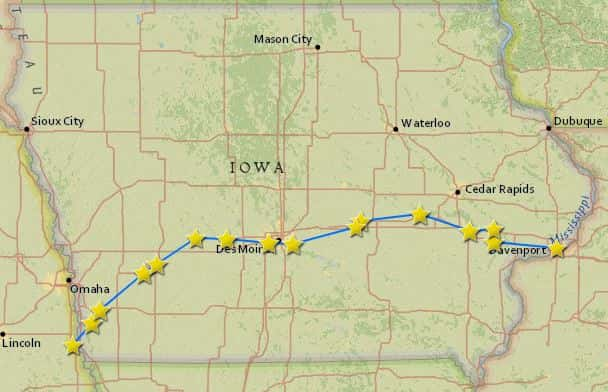
March has been proclaimed Iowa History Month by Governor Kim Reynolds, a time to look back and discover events you may have not known occurred in your neck of the woods.
Local historian Rod Stanley of Panora says one of the most significant historical moments of Guthrie County was its role in the Underground Railroad during the 19th century. An initial meeting point for slaves in Guthrie County was Pearson’s Mill north of Stuart, owned by Quaker John Pearson. Stanley explains how Pearson’s nephew Wells McCool also assisted slaves in Morrisburg, a Guthrie County ghost town, “Wells McCool was a blacksmith at Morrisburg and that’s where the slaves they would come to that blacksmith shop and talk to Wells McCool. And then Wells McCool would have a ride set up for them, usually it was from the Quaker settlement south of Redfield and the Bear Creek area. And those folks would come over and pick them up and that was the next stop and then from that point the next stop was the Jordan House in West Des Moines, which is a museum in itself today.”
Stanley shares why local and Iowa history should not be forgotten, “People have to understand their local history. I mean whether you live in Dexter or you live in Stuart or you live in Redfield, everyone should know about their community and what went on there — both the good things and bad things — just because it’s important to understand about the past. If you don’t understand the past you will repeat the bad things that happen if you don’t study it.”
Stanley will be presenting on Guthrie County’s role in the Underground Railroad at an event this summer, a link to which can be found here.

